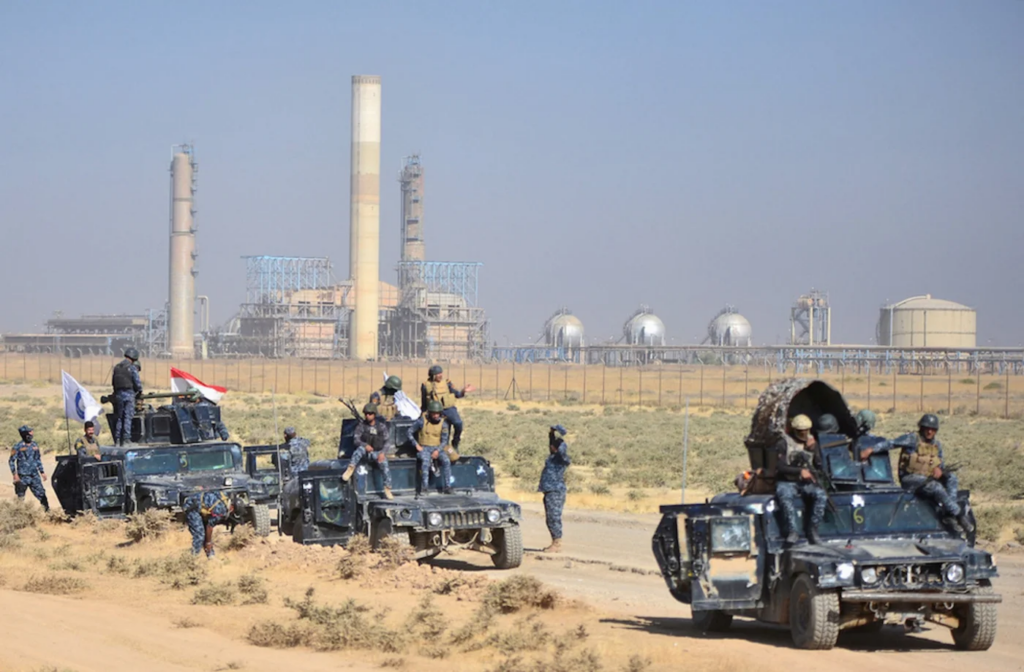
Ankara likely wants a modernised deal to operate the Kirkuk-Ceyhan pipeline within Turkey and link it to future projects
Turkey’s decision on Monday to cancel its 50-year-old crude oil pipeline agreement with Iraq raised eyebrows across energy markets.
In a decree published in the Turkish Official Gazette, Ankara announced that the agreement, originally signed in the 1970s along with all subsequent protocols, will be terminated effective July 2026.
The 1.6 million barrel per day Kirkuk-Ceyhan pipeline has been offline since 2023 when an international arbitration panel ordered that Ankara pay $1.5bn in damages for allegedly facilitating unauthorised Iraqi oil exports between 2014 and 2018.
Before the suspension, the pipeline was a key energy conduit between northern Iraq and the Mediterranean port of Ceyhan in southern Turkey.
While Turkey appeals the decision, the pipeline has remained shut with that closure now set to become permanent unless a new agreement can be reached.
Sources familiar with Ankara’s strategy told Middle East Eye that Turkey is eager to negotiate a new agreement with Baghdad, which reflects the changes in the geopolitical and economic landscape since the 1970s.
On Monday, Iraqi news agencies reported that Turkey had already submitted a draft proposal to Baghdad, seeking to renew and expand energy cooperation in areas including oil, gas, petrochemicals and electricity.
Turkish sources explained that one key motivation for the shift is the current nature of the Kirkuk-Ceyhan pipeline agreement.
The old agreement treats the infrastructure as a single entity spanning both countries, making any modifications dependent on agreement from both states.
That means negotiating changes to the entire pipeline even when only the Turkish side needs modification.
“Since Ankara’s discovery of oil reserves in Turkey’s Gabar region in 2023, there have been plans to explore whether this new production could be connected to the Ceyhan pipeline,” one source told MEE.
“Ankara wants to take care of its own pipeline under the new deal,” rhe source added.
Gabar oil reserves
In 2023, Turkish Petroleum announced a billion barrel oil deposit in the Gabar region, which has already become functional.
The Turkish energy ministry reported production had reached 81,000 barrels per day as of May this year.
Ankara is optimistic that continued drilling in the region will uncover additional reserves and daily production is expected to reach 100,000 barrels per day in the near future.
A Turkey-based energy expert, speaking anonymously due to the sensitivity of the matter, said Ankara has for years monitored so-called “tie-ins” on the Iraqi side of the border.
“Iraq has faced serious challenges, including armed extremist groups tapping into the pipeline via side valves to siphon oil,” the expert noted.
“There are also concerns about the integrity of certain sections of the infrastructure.”
The expert added that transporting Gabar oil by truck is only a temporary solution; if production increases, a pipeline connection will become essential.
Prioritising Turkish interests need not come at the expense of ties with Iraq, another source explained.
“Turkey could support Iraq by investing in and sharing expertise on renewables, such as solar and wind power,” the source said.
Possible areas of cooperation could extend deep into Iraq’s south, with a new pipeline from Basra to Turkey on the cards as part of Iraq’s Development Road initiative. Such a line would bypass Iraq’s Kurdish region entirely.
Turkish Energy Minister Alparslan Bayraktar told S&P Global Commodity Insights in April that Ankara has proposed building new pipelines to transport oil and natural gas from southern Iraq to Ceyhan, augmenting Turkey’s ambition to become an energy hub.
“From Basra, goods, gas, and crude would travel north to Haditha before reaching Silopi in southern Turkey, largely bypassing Iraq’s semiautonomous Kurdistan region,” the report said.
Bayraktar said that a “principal agreement” has been reached between Turkey and Iraq for the new pipelines and an additional electricity transmission line.
The official expressed confidence that studies will be completed “soon” and an overarching energy framework agreement will be signed “in the upcoming months”.






